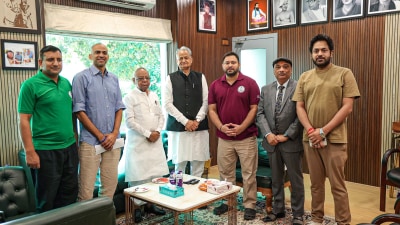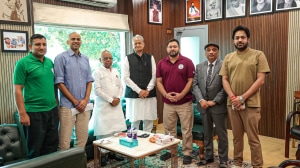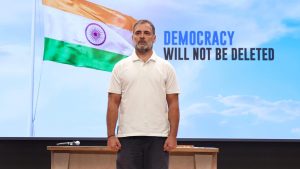SC to Govt: Quota can divide nation, tell us how you fixed
The Supreme Court observed today that the proposed 27 per cent OBC quota in all Central educational institutions “is capable of dividing this great nation on caste basis”

The Supreme Court observed today that the proposed 27 per cent OBC quota in all Central educational institutions “is capable of dividing this great nation on caste basis” and issued notices to the Centre and six ministries asking them to answer what was the “rationale” behind the classification of a class of citizens as “OBCs.”
Beginning the hearings on a PIL, a vacation bench of Justice Arijit Pasayat and Justice Lokeshwar Singh Panta made it clear that “as a matter of fact it (the case) requires judicial review” and set three crucial questions to the Union of India for reply:
• What is the basis of the norms for fixing OBC quotas?
• What is the rationale for this?
• If the proposal is implemented, what are the modalities of such implementation and the basis for the modalities?
The Centre, Ministries of Social Welfare, HRD, Statistics and Programme Implementation, Science and Technology, Commerce and Industry, Health, Education and Family Welfare, besides FICCI, the respondents arrayed in the case, were given eight weeks to reply to the questions and six weeks “thereafter” for the petitioners to give their “rejoinder, if any.”
The petitioners, Supreme Court senior advocate Ashoka Kumar Thakur and Shiv Khera, sought a direction quashing the amendment to the Constitution, Article 15(5), paving the way for enactment of a law providing for a further reservation of 27 percent, apart from the constitutionally sanctioned SC/ST reservation of 22.5 percent.
In a brief order, the judges said that the “policy, if adopted, will divide this great country on caste basis” and has severe “social and political ramifications.”The judges said there “need not” be a stay at this juncture as “we have already put them (the respondents, mainly the Centre) on enough alert.” In view of today’s development, as the Supreme Court is seized of the matter, the judges orally observed that “there be no more agitations, but we are not making it (the observation) part of the order.”
Additional Solicitor General Gopal Subramanian, present in the court, accepted the notices on behalf of the Centre and told the court that the constitutionality of the issue (the amendment) has to be debated, which the judges agreed.
It’s likely that a Constitution bench will be formed to determine the issue after the notice and rejoinder periods of eight and six weeks. Both Thakur and Khera contended that the constitutional amendment should be struck down first as it has fathered and mothered the law “The SC/ST and Other Backward Classes (Reservation of Seats) In Educational Institutions Act.”






- 01
- 02
- 03
- 04
- 05

























